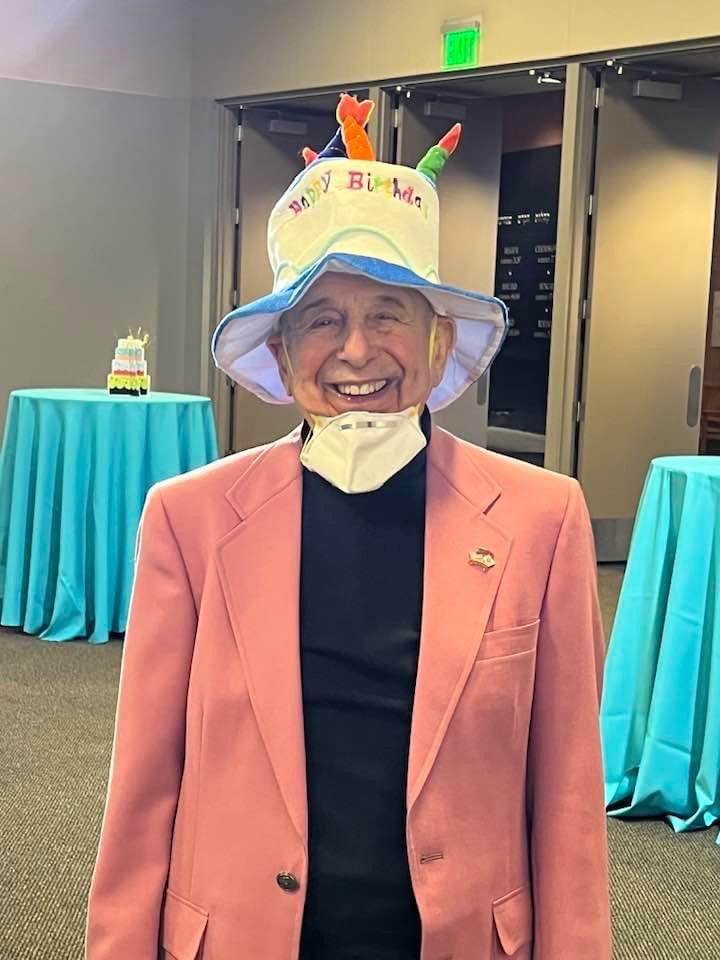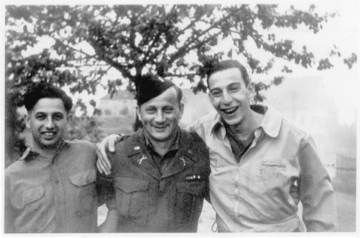
Last week, a living legend turned 100 years old.
Guy Stern, the former Wayne State University provost, senior vice president and distinguished professor of German literature and cultural history, has accomplished much during his life, and continues to do so.
Stern’s heroism during World War II was recently highlighted by 60 Minutes. His memoir, Invisible Ink, was published in 2020 by Wayne State University Press, and he still works five days a week at The Zekelman Holocaust Center in Farmington Hills.
Born Günther Stern on Jan. 14, 1922, he was the only member of his Jewish family to escape Germany, thanks to an uncle who helped him settle in St. Louis at the age of 15. Before going on to great academic achievement as a professor and writer, Stern joined the U.S. Army in 1943 and was one of the Ritchie Boys, a special unit of approximately 9,000 mostly Jewish refugees who were trained at Camp Ritchie in Maryland.
The Army used these soldiers — most of whom had fled Nazi persecution — to gather information due to their knowledge of the German language and culture. Stern interrogated German prisoners in France and Germany and received the Bronze Star for his method of mass interrogation.

He first returned to his German hometown of Hildesheim at the war’s end. The city had been devastated by bombing. Stern’s efforts, before joining the Army, to have his parents and siblings emigrate to the United States had failed. He would eventually learn his entire family perished in either the Nazi-controlled Warsaw Ghetto in Poland or the Auschwitz concentration camp. Walking the devastated streets of his hometown in 1945, he realized the world he knew would never be the same.
“I, too, was no longer the same person,” he said at a Hildesheim ceremony honoring him in 2011. “The frightened high school boy from the days of Nazi rule, Günther Stern, had become Guy Stern, an American citizen and a master sergeant of a U.S. military intelligence unit.”
Over the years, Stern became a leading global scholar in German literature and is credited with having co-created the academic discipline of exile studies, which highlights the contributions of authors, poets, playwrights and others who have been forced to leave the country of their birth.
In addition to his Bronze Star, Stern’s many awards include an honorary doctorate from Hofstra University; the Grand Order of Merit and the Goethe Medal from his native Germany; and, most recently, the Knight of the Legion d’Honneur medal from the French Consul General.
